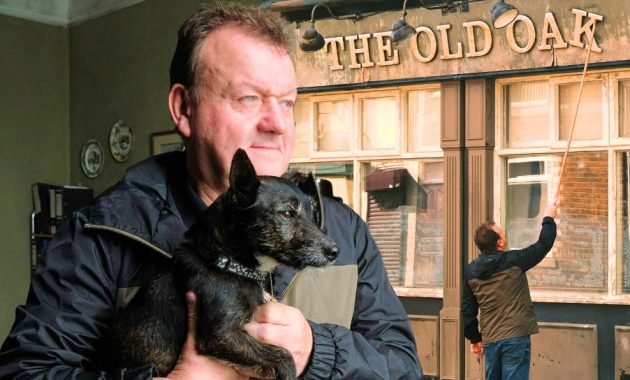T.J walks through a graveyard, visiting his wife who is buried there. By his side, his tiny mongrel pup, Marra, yapping about and waggling his tail. Like all dogs, he is just grateful to be outside, and grateful to be alive. Marra suddenly runs, catching a scent and following his instincts. T.J pursues, calling his name as he is worried for his safety. He is right to be worried. As also pursuing him, a larger dog: an XL Bully, following its instincts too. Dragging its owner, who cannot control it, the massive dog catches up to Marra. The camera cuts, we hear a squeal, and see the bully’s mouth smothered with blood. The audience in the cinema is silent, but the atmosphere is thick as tears fall down our collective faces. ‘Something must be done’, we all think at once.
XL Bullies have been a polarising topic for the past several months. With shocking videos coming to light depicting violent attacks, and stories such as a 54-year-old man in Wearside who sustained fatal throat injuries from one. Resultantly, the Conservative’s banned the breed in February of this year.
It’s a topic touched upon in Ken Loach’s latest film, The Old Oak. Loach is a filmmaker who always makes a cultural impact. His 2016 film I, Daniel Blake depicts the struggles of those living on benefits, while criticizing the real-life repercussions of the Conservative’s austerity. It’s revered not only for its content, but also for its radical marketing strategies like projecting the quotes from the film onto the Houses of Parliament.
Pamela Hutchinson is a film historian who produces the weekly film bulletin for Sight and Sound, and has authored books including 30-Second Cinema. She says describing Loach: “There’s an atmosphere and certain images in his films that stick with you.
“Loach has often used animals as a symbol of our lack of care or neglect for society, and how cruel humans can be to each other when they’re in difficult circumstances.”
As a dog lover, I have always opposed bans. But seeing such a gruesome attack, even through film, made me grapple with the real situation. But this is one example. Is it right to generalise an entire breed, and are dogs ever responsible for their own behaviour?
Ross McCarthy, London-based Canine Behaviour Practitioner, says no: “You can’t say all Dalmatians behave like this, or all Yorkshire Terriers do this, nor can you generalise with the XL Bully.
“Responsibility typically lies with the owner, regardless of the dog’s innate temperament… The type of people who choose to own these dogs, don’t always have the welfare of the dog in the forefront of their mind, nor do they have the welfare of society as a whole… So don’t invest time in training their dog and don’t abide by the same moral codes that other dog owners do.”
McCarthy believes in an alternative way of regulating dog ownership. He argues that bans aren’t properly enforced, referencing the 1991 Dangerous Dogs Act which banned Pitbulls, he says: “I live in London, and you can go for a drive around the block and see numerous Pitbulls on the streets.
“If you want to buy a larger dog, like an XL Bully, then you need to study and you need to undertake a test and you need to get a licence to say you can own those, because you have the sufficient knowledge to manage that dog safely in society.”
There are certainly responsible, and loving dog owners who are willing to do this. Catherine Richard, 34, owns two XL Bullies. Sunny, a male who is six, and Pig, a female who is four. She has owned them both since they were puppies… and she loves her dogs.
“He’s the bigger out of the two, and the older one. He is what you could only describe as a grumpy old man… He plods, that’s the best way to explain him. Whereas the Pig, she’s scatty… so as long as you’re squeaking at her, she’s loving life.
“I was very much of the mindset of ‘big dogs, big consequences’. When Sunny first came to us, we went to a behaviourist. We made sure that their recall was on point, and that they were muzzle trained from the beginning. Not because of showing any signs of aggressions, but because it is responsible dog ownership.
“The reason this situation has come about is because of those people that aren’t doing what they should be doing as a dog owner properly. Those are now the people that won’t hesitate to euthanise their dogs.
“They’re just things to them, they’re not family.”
Dog bans punish the innocent. Dogs are not responsible for the owners that neglect them. But something still must be done. Like Ross McCarthy suggests, a licence is the most logical solution, in order to enforce responsibility on owners, and protect the lives of innocent people, and dogs.
There is a famous Loach quote which goes “a movie isn’t a political movement, a party or even an article. It’s just a film. At best it can add its voice to public outrage.”





















